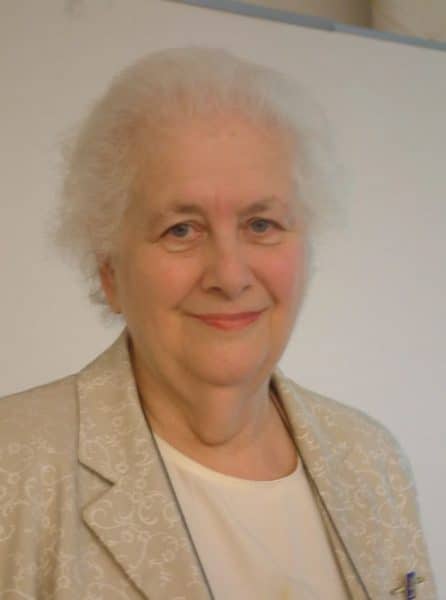
Gabriella Morreale
Gabriella Morreale de Escobar (April 7, 1930 to December 4, 2017) was a Spanish chemist who was a leader in thyroid research. She was born in Milan of parents who were bother biologists, but was educated in Austria, the United States, and Spain, obtaining her doctorate in chemistry from the University of Grenada. In her doctoral thesis she demonstrated a link between iodine deficiency and the incidence of goiter, a thyroid condition. In 1953, she married Francisco Escobar del Rey, also a scientist, and the two would collaborate for the rest of their careers. In 1958, Morreale and her husband joined the staff of the High Council for Scientific Research (CSIC) and in 1974 moved to the Faculty of Medicine of the Autonomous University of Madrid where they were co-founders of the Instituto de Investigaciones Biomedicas.
Morreale made several significant discoveries in the field of thyroid pathophysiology. One of these was to show that that thyroxine (T4) is converted to triiodothyronoine (T3), which led to the understanding that T4 is a “prohormone” while T3 is the active hormone. She and her husband also showed that during pregnancy thyroid hormones of the mother are transferred to her unborn child and are important for fetal brain development. Morreale was one of the founders of the European Thyroid Association, in 1967, and its president from 1978 to 1980. In 1985 she received the European Thyroid Association Prize, and in 2009 the Serge Lissitzky Career Award. A tribute to her written at the time of her death noted that “several generations of scientists initiated their research in her laboratory” and that even after her official retirement she remained for many years “a continuing source of inspiration.”
Morreale said of herself, “Following God and family, science is the driving force in my life.”
Explore Other Scientists
It is our hope that this curated set of biographies will be useful to teachers, students, and the general public.